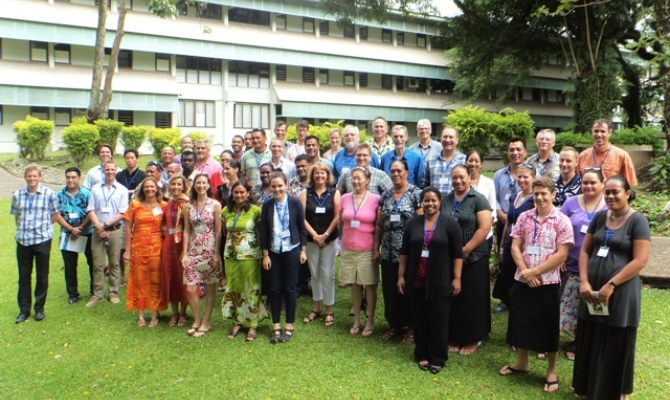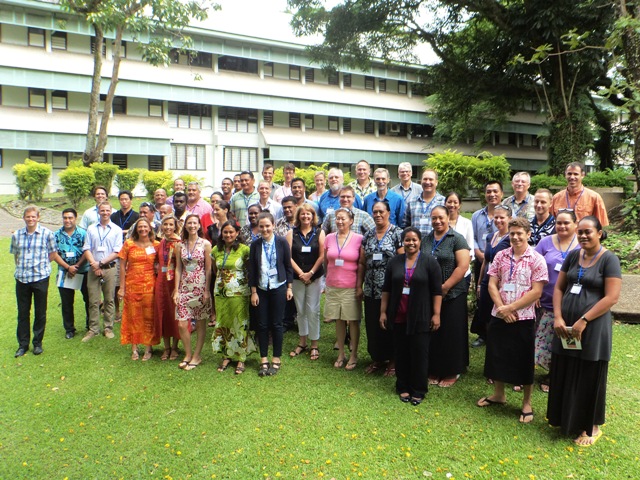
Biodiversity Conservation

25 November 2013, Steve Pogonowski, Marine Spatial Planning, Suva Fiji - Creating marine spatial plans that promote sustainable ocean and coastal management is vital across local, national and regional levels, attendees at a workshop at the University of the South Pacific in Suva, Fiji, heard yesterday.
Marine Spatial Planning is the process of analysing and making recommendations on the distribution of human activities affecting coastal and marine areas. A key goal is to balance ecological, economic, social and cultural objectives.
The first day of the Marine Spatial Planning workshop introduced three regional programs focused on cooperation between South Pacific countries on marine spatial planning: PACIOCEA, MACBIO and the proposed Australian Oceans Governance program.
The five-day workshop was organised by French Marine Protected Areas Agency (AAMP), Secretariat of the Pacific Regional Environment Programme (SPREP), German Agency for International Cooperation (GIZ), the International Union for the Conservation of Nature (IUCN), Australian Department for the Environment (DoE), Intergovernmental Oceanographic Commission (IOC) of UNESCO and the Institute of Research for Development (IRD).
Attendees on the initial day represented countries and territories including Kiribati, New Caledonia, Pitcairn Island, American Samoa, Cook Islands, Germany, France, Australia and New Zealand.
Jan Steffen, MACBIO Project Manager at Deutsche Gesellschaft für Internationale Zusammenarbeit (German International Development Agency) was enthusiastic about the potential for data-driven marine spatial planning that can benefit Pacific countries and territories.
"It is important to have access to the relevant data for all areas, such as whale and turtle migratory routes, seamount locations, threatened species habitats, in deciding marine spatial planning and informing other countries of the reason for that planning," he said.
One of the topics of discussion was the goal of persuading governments of all South Pacific countries to engage in constructive dialogue with a high-level political entity such as the Ocean Commissioner's Office on all issues that may affect sustainability.
Six goals have been determined for the workshop:
1. Develop core input to an outline for guidelines for MSP approaches applicable at sub-national, national and regional scales in the Pacific.
2. Develop mechanism for aligning efforts to support MSP for Pacific islands.
3. Initiation of the PACIOCEA projects.
4. Sharing experiences on MSP methodologies, implementation and challenges at sub-national, national and regional scales.
5. Developing approaches for linkages and crossover between scales of MSP.
6. Coordinate with closely aligned efforts and broader participants through joint meeting with Access and Benefits Sharing and Convention of Biological Diversity Programme of Work for Protected Areas workshops.